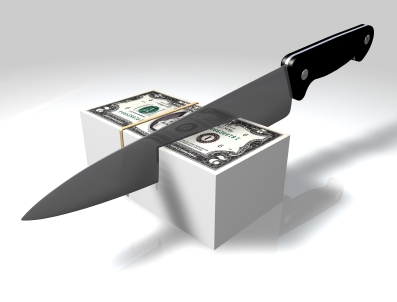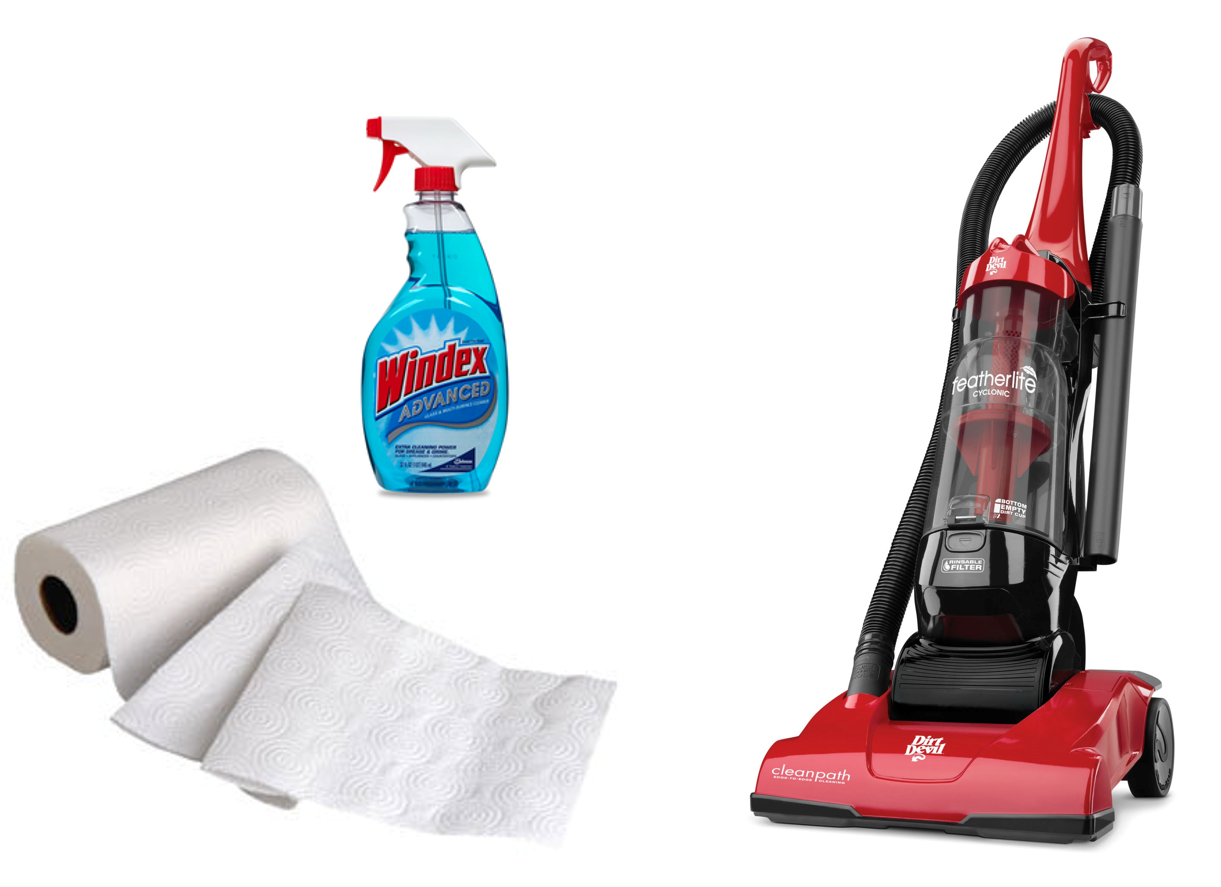How to Cut Your Tradeshow Costs -- Part 2
 In Part 1, we reviewed seven techniques to save on your tradeshow marketing. In Part 2, we’ll cover twelve techniques to cut your costs through careful pre-show planning.
In Part 1, we reviewed seven techniques to save on your tradeshow marketing. In Part 2, we’ll cover twelve techniques to cut your costs through careful pre-show planning.
1. Graphics, Literature, Promotional Products & Shipping
The exhibit is the main attraction. Always will be. But there are other marketing and operational tasks to complete, such as literature, promotional products, and shipping. All of these, when done ahead of time, will save you a significant amount of money and lessen your anxiety.
We tend to work toward a deadline. What if we worked well in advance of a deadline? For example, your supplier may give you a timeline of 7-10 days, whether it’s a giveaway or printing your brochure. But, 7-10 days assumes everything goes according to plan. It won’t. Don’t wait until the last minute. Plan for ground shipping vs. overnight and assume they’ll be a glitch or two along the way. You’ll have the opportunity to see any mistakes and have them corrected early. As a bonus, you’ll sleep better the week before the show.
2. Early Bird Forms
 This is the easiest way to save money at your next tradeshow. There is a reason these early bird forms exist––show contractors want you to complete them early, because the more information they have, the better they can prepare for the show.
This is the easiest way to save money at your next tradeshow. There is a reason these early bird forms exist––show contractors want you to complete them early, because the more information they have, the better they can prepare for the show.
Many exhibitors, however, still put off this task. While filling out these forms can be a painful exercise, it’s critical to submit them by the early bird deadlines. If you don’t have all the information you need or some information will be subject to change, that’s okay. You can make corrections later. By sending in these forms early, you can save hundreds or even thousands of dollars.
3. Pre-assemble and Inspect Your Exhibit
 While you may not like the idea of having to assemble the booth twice, in your own shop and then again on the trade show floor, this trade show planning step is a great cost-cutting measure. When you know what to expect at the show in terms of assembly, you will save time and prevent any nasty surprises.
While you may not like the idea of having to assemble the booth twice, in your own shop and then again on the trade show floor, this trade show planning step is a great cost-cutting measure. When you know what to expect at the show in terms of assembly, you will save time and prevent any nasty surprises.
As any tradeshow veteran knows, when there’s an issue on the show floor, it's a painful and expensive fix, and there are no cheap solutions. Whether it’s overnighting graphics or getting a spare part over the weekend, everything is going to be more costly––and stressful. Make sure everything is right before you ship your booth to the show. Having your booth only partially assembled on the day the show opens is worst than not arriving at all.
4. Advance Warehouse vs. Direct-to-Show
 There are two main ways to ship your booth to a show: Advance Warehouse and Direct-to-Show. While Direct-to-Show shipping appears cheaper, shipping to the Advance Warehouse may actually save you money.
There are two main ways to ship your booth to a show: Advance Warehouse and Direct-to-Show. While Direct-to-Show shipping appears cheaper, shipping to the Advance Warehouse may actually save you money.
When you ship your booth to the Advance Warehouse––sometimes months ahead of time––you have less to worry about as you get closer to the show. When the show dates get closer, everything in the Advance Warehouse will move to the venue. Say you’re attending a show that takes place Monday through Wednesday. The setup for that showis likely to be on Friday, Saturday, and Sunday. If you ship your booth to the Advance Warehouse, you’re exhibit will be ready for your crew to assemble Friday morning.
If you ship it Direct-to-Show, however, you may experience delays, and it’s difficult to predict and arrange your labor when you don’t know when your booth is going to arrive. In most cases, your freight driver is sitting in the marshalling area waiting to unload, which means you’re paying for that wait time. If that happens, your setup may move to Saturday or Sunday, meaning overtime vs. regular hours.
5. Hanging Sign to Advance Warehouse
If you have a hanging sign, ship it to the Advance Warehouse (even if you don’t ship your booth there). It’s always easier for the riggers to hang that sign above your assigned booth space when there’s no one on the show floor. But most importantly, they’re less likely to inflict damage to your sign and to your booth.
6. Avoid Special Handling Charges
 The easier it is to get your freight from the trailer to your booth space, the fewer special handling charges you’ll see on your drayage bill. Avoid stacking things on top of one another or strapping items together. Loose components add up. They require more labor and effort, and the show contractor will recoup that time and effort on your bill, which can sometimes double or triple the charges.
The easier it is to get your freight from the trailer to your booth space, the fewer special handling charges you’ll see on your drayage bill. Avoid stacking things on top of one another or strapping items together. Loose components add up. They require more labor and effort, and the show contractor will recoup that time and effort on your bill, which can sometimes double or triple the charges.
If you do get a special handling charge, be sure to ask the general show contractor why those charges were added. You can then get a good idea of what to avoid next time. It may not always make sense to you, but it’s not about logic. It’s about saving your money.
7. Invest in Lead Retrieval Software
Whether you rent, purchase, or lease lead retrieval software depends on your show schedule and the sophistication of your lead management. Some exhibitors are only interested in collecting the most basic information: client name, contact information, show, and date. Others have a comprehensive list of questions they want answered and need the ability to email literature or follow-up directly from the show. Others have specific requirements for their CRM software and how it should be uploaded and managed.
If you want to collect detailed information on your leads, lead retrieval software is a good way to save time, money, and headaches when it comes to lead retrieval at the show. However, choose the lead retrieval package that makes the most sense for your situation. Don’t pay for more than you need. And don’t buy less than you need, whether it’s for one show or for your entire show schedule. Cheaper software can actually be more expensive in the long run.
8. Cleaning Supplies
 Cleaning fees are one of the ridiculous charges at any tradeshow. It can cost hundreds of dollars simply to have someone vacuum your exhibit every morning. On the other hand, you can buy a $99 vacuum that can fit in your crate and ship with your booth, along with other necessary cleaning supplies. Make it a game with your exhibit staff. If everyone pitches in with the cleaning each day, the money you saved by not paying for vacuuming services can go toward a post-show celebration.
Cleaning fees are one of the ridiculous charges at any tradeshow. It can cost hundreds of dollars simply to have someone vacuum your exhibit every morning. On the other hand, you can buy a $99 vacuum that can fit in your crate and ship with your booth, along with other necessary cleaning supplies. Make it a game with your exhibit staff. If everyone pitches in with the cleaning each day, the money you saved by not paying for vacuuming services can go toward a post-show celebration.
9. Purchase Your Monitor at the Show City
This is a great cost-saving idea. You may need a monitor in your booth, and with the prices of flat screen TVs plummeting, you can get a nice one from $300 to $600 dollars depending on the size.
Instead of paying to ship that monitor to the show, simply buy it at the show city––whether you’re in Las Vegas, Chicago, or Orlando. Then, to save the money on shipping the monitor back to your location, use it as a giveaway to encourage more booth traffic and collect more leads. Who doesn’t want to win a flatscreen TV?
10. Internet
 Think hard about whether you really need to be connected to the Internet in your booth. Does it advance your trade show marketing program in any way? Or is it a distraction?
Think hard about whether you really need to be connected to the Internet in your booth. Does it advance your trade show marketing program in any way? Or is it a distraction?
Internet charges on the show floor can be extremely high, and connectivity is often unreliable, making it a wasted investment anyway. If you’re using lead retrieval or mobile order writing software, consider solutions that have offline access.
11. Share Advertising
This may not apply to everyone, but it can be a huge cost savings. If you have strategic industry partners who are exhibiting at the same show and have similar customers but aren’t direct competitors, explore opportunities to cooperate with them on show advertising and co-hosted events.
Splitting these costs will allow you to expand your marketing and networking while saving money. Splitting bar tabs and meals with common customers goes a long way without having any impact on your sales process.
12. Rent a House
 If you’re bringing a group of about six or more people to a show, renting a house near the convention center can be much more economical accommodation option than paying for individual hotel rooms. It also offers much more flexibility. Many exhibitors use the house they rented as a venue for networking events and parties during the show. It's also a great excuse for combining a company retreat with the tradeshow.
If you’re bringing a group of about six or more people to a show, renting a house near the convention center can be much more economical accommodation option than paying for individual hotel rooms. It also offers much more flexibility. Many exhibitors use the house they rented as a venue for networking events and parties during the show. It's also a great excuse for combining a company retreat with the tradeshow.
Questions about any of the cost cutting suggestions Let us know. See Part 1 and Part 3 for more tips.
Contact Us
For more information about trade show or event marketing, give us a call or Contact Us. We welcome the opportunity to assist you with your next show.
Article Author:
Mel White, CEI







